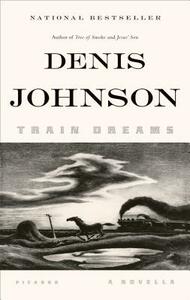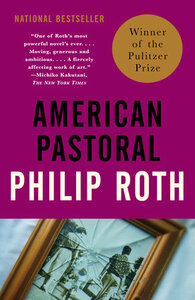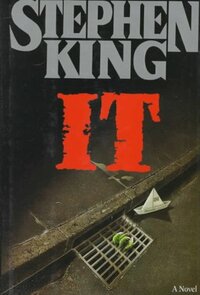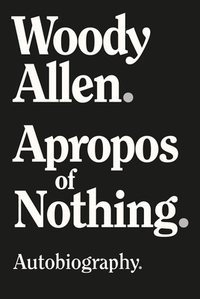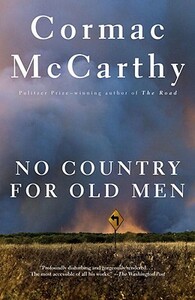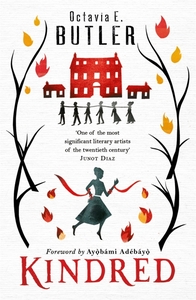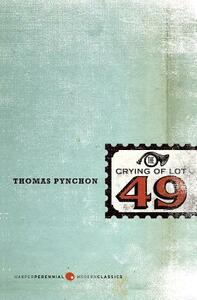Take a photo of a barcode or cover
davidaguilarrodriguez's Reviews (185)
challenging
dark
informative
reflective
sad
medium-paced
I think this is my first 5 star non-fiction. This book is essential reading for all Americans. If you’re reading my review, stop and go get this book and read it now. Right now. I mean literally this moment you better not finish this sentence. GO!
Greg Grandin has written gripping narrative history — enthralling, horrifying, and impossible to put down. I was connected to certain historical figures, sad, angry, hopeful, despairing, and always riveted. It offered a fresh, devastating lens on the history of the Americas and insight into centuries of injustice.
The structure is masterful. Grandin follows key figures and moments across centuries, circling back to people and ideas to reveal the cyclical nature of history. It’s an elegant braid of biography, politics, and morality, where each thread deepens the others.
The themes are sweeping and urgent: imperialism, colonialism, revolution, the role of the U.S. in Latin America and the world at large. Grandin shows how the U.S.’s brutal experiments in the Americas served as testing grounds for strategies later unleashed globally — and domestically — by the political and economic elite.
I learned so much, especially about José Martí and Bartolomé de las Casas, alongside truly chilling portraits of American villains. Grandin balances the broad sweep of centuries with intimate detail: the writers who bore witness, the leaders who resisted, the everyday people caught in the machinery of exploitation.
His political lens is unapologetically persuasive and polemical in the best way. If you don’t feel inspired to revolution after this, I got nothing for you. He gives voice to the marginalized and suppressed, making the relevance to today’s atrocities impossible to ignore.
The final chapters hit hardest, charting the post-Roosevelt descent into the full embrace of the military-industrial complex, CIA interference, and wars against the poor. It’s epic, tragic, and enraging.
Grandin’s prose is vivid, poetic, and journalistic — history written in fire and lightning.
The entire human race should read this book, or at least every citizen in both hemispheres of the Americas.
reflective
sad
medium-paced
Plot or Character Driven:
Character
Strong character development:
Yes
Loveable characters:
Complicated
Diverse cast of characters:
No
Flaws of characters a main focus:
Complicated
A quiet, contemplative novella/long short story, Train Dreams is a meditative yet emotional piece. It’s the life of Robert Grainier — logging man, family man, eventual hermit. More of a vibe piece, but the vibes are strong.
Reading this felt like slipping into what Greil Marcus called "that old, weird America" in reference to Bob Dylan's Basement Tapes album. And in many ways this was a Dylanesque folk song, elegiac but not mournful, where personal grief and the myth of the American frontier intersect.
Johnson blends realism with a light touch of the mythic and magical — enough to give the story a dreamlike, fable quality, without tipping into full-blown surrealism. It’s a story haunted by loss, by isolation, by the slow retreat from society when you experience trauma after trauma.
Johnson blends realism with a light touch of the mythic and magical — enough to give the story a dreamlike, fable quality, without tipping into full-blown surrealism. It’s a story haunted by loss, by isolation, by the slow retreat from society when you experience trauma after trauma.
I connected with the main character Grainier — his self-recrimination, his quiet resignation — but I also saw him as a lens to understand how people drift into solitude. His life is tragic, but there’s dignity in how he carries it. He’s not railing against fate; he’s simply… living. A very human response to loss, and one I've seen firsthand in some people in my own life.
The book’s greatest strength is its imagery. The fire. The woods. The wolves. The bridge. The trains. The scenes are painted with sharp, simple strokes that leave a lasting impression. Johnson’s prose is spare but evocative — poetic yet hardscrabble, like a burned forest.
This is a good novella. Solid, moving, beautifully written. It feels like the kind of story that would shine as the closing piece in a collection, like The Dead in Joyce’s Dubliners — a meditative capstone. As a standalone book, it’s solid. A good book if you want to read something in one night.
dark
funny
reflective
tense
medium-paced
Plot or Character Driven:
Character
Strong character development:
Yes
Loveable characters:
No
Diverse cast of characters:
Complicated
Flaws of characters a main focus:
Yes
Boomer Angst: The Novel
American Pastoral is an interesting if exhausting novel — very much a product of its moment. It's a book about the collapse of American innocence, the failure of the liberal imagination, and the yawning chasm between how we think life should be and the chaos that actually ensues.
It is a novel that screams: What happened to my nice suburban life? Which, depending on your mood, can feel either tragic or tedious. I'd veer toward mostly tedious when this is the focus.
At its best, this is a story about unknowability. Roth’s narrator, Nathan Zuckerman, imagines the life of Swede Levov — a Jewish golden boy who marries a beauty queen, runs a glove factory, and believes in the promise of postwar American decency. But Zuckerman is clear: this is his imagination of Swede’s life. The story becomes a meta-narrative about storytelling itself — how we mythologize people, how we impose narratives, how we desperately try (and fail) to understand the inner lives of others.
That metafictional lens is the book’s greatest strength. It’s not the 60s radicalism or the “loss of American innocence” that lingers most — it’s Roth's interrogation of how stories fail us. Zuckerman’s projection of the Swede is as flawed as the Swede’s own projection of America.
The novel is framed by a tragic but majestically rendered 1940s Newark, a mythic portrait of Jewish assimilation and athletic glory. The Swede, seen through Zuckerman’s nostalgic gaze, is larger than life. But as we dive into his imagined adult life, the cracks show. His daughter, Merry, commits an act of domestic terrorism. His wife, Dawn, unravels. His American Dream turns nightmare. Yet even in its worst moments, Swede clings to an illusion of control.
Swede is a naive figure. He wants so badly to be a good man, to keep things “normal,” but his vision of normalcy is built on denial and repression. Roth tears him apart — sometimes with empathy, sometimes with cold disdain. Swede isn’t destroyed by the 60s, or by radicals, or by Merry’s bomb — he’s destroyed by his own refusal to confront the contradictions of his life and country.
Merry, on the other hand, is a problem. She is presented as an incomprehensible figure — a radicalized daughter who becomes an unknowable void. On a thematic level, this works in a way. But emotionally, it falls flat. Roth doesn’t seem to know how to write her, beyond symbol and symptom. His depiction of Dawn, the suburban wives, and especially of Rita Cohen — a gross male fantasy of a hippie radical — confirms that Roth’s limitations in writing women are not a feature, but a bug.
Where the book triumphs is in scenes that feel lived-in. The early Newark sections, the myth-making around the Swede’s youth, and most importantly, the final dinner party. That dinner — with its petty marital tensions, neighborly resentments, and the unforgettable Shakespearean "Fool" wisdom of Lou Levov (the Swede’s father) — is the book’s emotional crescendo. Lou crashes the bourgeois pissing contest with old-school moral clarity. It’s brilliant. The book roars back to life in that scene. Lou was by far my favorite character and he came correct with the energy to draw my interest back into a book I was getting fairly bored with.
Roth’s prose, aside from some of the content, really hit hard for me when he was interrogating stories and memory, less so when he was repeating the same ideas over and over again about American life. It's spiraling, interrogative, obsessive. His sentences don’t meander playfully like a postmodernist; they crash like waves then drill down like a Talmudic midrash. When it works, it’s exhilarating. When it doesn’t, it’s repetitive and annoying.
Thematically, the book covers a lot of ground: assimilation, Jewish identity, liberal guilt, political violence, generational fracture, storytelling itself. Some of these themes (like Jewish assimilation) are razor-sharp. Others (like the “loss of American innocence”) feel dated and obvious — like a Boomer discovering that the world is complicated for the first time.
But here’s the thing: American Pastoral came out in 1997. And what is this book, if not a pre-9/11 meditation on American stability and the intrusion of terrorism into private life? Swede’s family is the country. Merry’s bomb is the 21st century arriving early. The book doesn’t fully grasp the larger forces it’s playing with — but it feels the unease. Roth wasn’t writing about the 60s. He was writing about the 90s, about the fraying of postwar myths, about how something terrible was coming, even if no one could name it yet.
In the end, American Pastoral is both a thought-provoking novel and a frustrating one. It’s most thoughtful as a novel about the limits of empathy and storytelling than it is as a political novel. It's most enjoyable as a depiction of a world Roth knew well (40s Newark childhood, 70s suburban dinner parties like something out of the great movie by Ang Lee The Ice Storm). It’s most tedious as a novel about 60s radicalism and realizations about the shattering of certain dreams of complacency. And yet it’s most interesting as a time capsule of the creeping anxiety at the end of the 90s and the things people had on their mind at the end of the last decade of American exceptionalism.
What the hell was going on at the end of the 90s? While the reviewers of the time were so focused on this idea of "yeah this book really slaps when it comes to asking questions about the American Dream and showing that Boomer era life wasn't what was promised", the more interesting thing about it is that it wasn't an elegy for what had happened or failed to happen but a premonition of what was to become much, much worse.
What the hell was going on at the end of the 90s? While the reviewers of the time were so focused on this idea of "yeah this book really slaps when it comes to asking questions about the American Dream and showing that Boomer era life wasn't what was promised", the more interesting thing about it is that it wasn't an elegy for what had happened or failed to happen but a premonition of what was to become much, much worse.
dark
emotional
sad
medium-paced
Plot or Character Driven:
A mix
Strong character development:
Yes
Loveable characters:
Complicated
Diverse cast of characters:
No
Flaws of characters a main focus:
Yes
A Great American Novel from the underside of the American Dream...
An American Tragedy is a sweeping, morally complex, class-conscious epic that feels carved into the foundation of American literature. It belongs on the same shelf as The Great Gatsby — not as a peer across the ballroom, but as a counterpoint from across the tracks. Where Gatsby offers a glittering dream glimpsed from the margins, Dreiser turns the camera around and shows us what it’s like to live in the margins themselves — to claw for something better, to ache with longing, and to fall hard when the promise proves hollow.
This is a deeply immersive read — emotionally gripping, intellectually provocative, and morally thorny. Dreiser’s prose (sometimes dismissed as clunky or shapeless) is in fact underrated. It combines sociological observation, moral-philosophical inquiry, and passages of piercing psychological interiority. His writing feels honest, unflinching in its portrayal of society’s failures and the flawed people caught in its gears.
At the center is Clyde Griffiths, a great tragic character. I pitied him, I hated him, I understood him. He’s not a hero, he's probably a villain, but he is definitely human — and Dreiser’s achievement is in showing how a man’s character can be shaped, and ultimately broken, by the society around him. Clyde isn’t merely a murderer; he’s a product of poverty, repression, religious guilt, social aspiration, and American mythology. He dreams of wealth and status, but he lacks the means — emotionally, intellectually, morally — to reach them.
The class critique here is razor-sharp. Published just weeks before The Great Gatsby, this novel offers a perfect inversion: Gatsby lingers in the upper-class world and treats the working class as fleeting shadows; Dreiser does the opposite. We live with factory workers, street preachers, small-town girls, and social climbers yearning for something better. The world of the elite with their country clubs, parties, and society gossip in the newspapers, is glimpsed just enough to tantalize and destroy.
Sondra and Roberta form a brilliant duality. Roberta is heartbreaking, especially in the scenes leading up to and following her death — I cried in the scene when her father learns of her fate . Sondra, for her part, is no villain; she does what she must to protect herself when the truth comes out. The novel never blames the women — only Clyde, and the society that shaped him.
The murder itself
The trial, unfortunately, drags. It’s the one weak point for me — not because the material isn’t compelling, but because we’ve already lived these events with Clyde. The courtroom scenes feel more like a replay than a reckoning. A more concise final act might have elevated the ending’s power and trimmed about 100 pages.
But even with its length and occasional repetitions, the book is a masterwork. It grapples with religion, sexuality, ambition, gender roles, and the morality of a country that preaches freedom but crushes the poor. It’s a panoramic vision of American life in the early 20th century — not romanticized, but raw, honest, and achingly human.
In summary, I’d recommend this book to anyone who’s read The Great Gatsby and wants to see the same era through a different lens — one closer to the ground, where the cost of the American Dream is paid in blood.
PS now I need to check out the movie version - A Place in the Sun, starring Elizabeth Taylor and Montgomery Clift. I'd also recommend Match Point by Woody Allen, which basically lifts this plot, moves it to London, and adds a more Dostoevsky-inspired style.
dark
tense
medium-paced
Plot or Character Driven:
A mix
Strong character development:
Yes
Loveable characters:
Complicated
Diverse cast of characters:
No
Flaws of characters a main focus:
Yes
A frustrating book that could have been The Great American Novel - not Horror Novel, not Genre Novel, just Novel - had its author not been so committed to mediocrity. I'm angry because this book should be getting 5 stars and going on my Favorites shelf and becoming an annual re-read. It had so much potential and ambition — and then squandered it.
This book is a towering American horror novel about childhood trauma, memory, friendship, and the rotten core at the heart of small-town American life. At its best, it is that. But King — oh, King — just couldn’t get out of his own way. And so the very themes he sets out to explore (racism, misogyny, fatphobia, homophobia) are undercut at every turn by the narrative voice itself — a voice steeped in all those same prejudices. The result is a deeply frustrating experience: thrilling and resonant one moment, maddening and cringe the next.
At first, I was hooked. It’s terrifying, emotionally charged, compelling as hell. The structure — dual timelines converging across 1958 and 1985 — is an actual marvel and maybe my favorite thing about the book. The thing that elevated it beyond mere horror novel into rarified air. I was gripped by both eras, and found myself admiring how King wove past and present together in spirals of trauma and memory.
The Losers Club are a strong ensemble, and the novel’s central metaphor — that It is the dark psychic energy feeding off a town’s repressions and hatreds — works on a mythic level. There’s so much brilliance here: childhood fear, friendship as survival, the poisonous inheritance of abuse and bigotry, the idea that evil is as much systemic as it is supernatural.
The Losers Club are a strong ensemble, and the novel’s central metaphor — that It is the dark psychic energy feeding off a town’s repressions and hatreds — works on a mythic level. There’s so much brilliance here: childhood fear, friendship as survival, the poisonous inheritance of abuse and bigotry, the idea that evil is as much systemic as it is supernatural.
But slowly, ineluctably, the wheels come off.
The prose is sloppy, indulgent, straining. The novel is bloated by hundreds of pages, weighed down not by narrative necessity but by King’s unchecked impulses. To be completely honest, I would be okay with this - I actually admired this quality in Hugo's Les Miserables - except that worst of all, the very evils he aims to critique begin to seep into the narration itself.
There’s an alarming amount of misogyny and fatphobia, especially toward Eddie’s mother and wife — grotesquely rendered not for thematic insight, but cheap horror and laughs. Misogyny seeps into the depiction of Bev, who never becomes a real character — just a vessel for male fantasy. Racism and homophobia are rightly condemned in the plot, but then King turns around and undercuts his moral position by reducing marginalized characters to stereotypes. It’s not just the villains who spew hate; the book’s voice joins in, too often and too gleefully.
There’s an alarming amount of misogyny and fatphobia, especially toward Eddie’s mother and wife — grotesquely rendered not for thematic insight, but cheap horror and laughs. Misogyny seeps into the depiction of Bev, who never becomes a real character — just a vessel for male fantasy. Racism and homophobia are rightly condemned in the plot, but then King turns around and undercuts his moral position by reducing marginalized characters to stereotypes. It’s not just the villains who spew hate; the book’s voice joins in, too often and too gleefully.
Let me be clear: depicting societal cruelty is not the problem. Of course King should show how racist, sexist, and homophobic this town is. The issue is that he often indulges in those very mindsets himself. The macro-aggressions are the characters’. The micro-aggressions — and not-so-micro — are the author’s.
And yes, the infamous sewer scene is as disturbing and unnecessary as everyone says.
There are great scenes here. Brilliant moments, unbelievable ambition. The Georgie prologue. Stan’s wife finding him. Bill’s reflection on being dismissed in college for just being a genre writer as if that's somehow inferior to "real literature." Mike’s interludes. The town of Derry as a character representing the Horrors of 20th Century American Life.
When King writes what he knows — childhood pain, male insecurity, the power of horror stories — he’s at his best. But when he tries to write women, fat people, or gay characters? He’s way out of his depth, and the book is practically unreadable in those moments.
When King writes what he knows — childhood pain, male insecurity, the power of horror stories — he’s at his best. But when he tries to write women, fat people, or gay characters? He’s way out of his depth, and the book is practically unreadable in those moments.
In the end, It feels like a tragic metaphor for itself. A goldmine of narrative potential and thematic ambition blown away by Boomer bias and a lack of editorial discipline. A storyteller who, in reaching for myth, stumbled into a sewer.
Graphic: Body shaming, Bullying, Child abuse, Fatphobia, Misogyny, Racial slurs, Sexism, Sexual violence, Suicide, Toxic relationship, Antisemitism
funny
informative
fast-paced
Woody Allen’s memoir is, unsurprisingly, a hilarious and compulsively readable ride. The man can’t help but be funny — he’s one of the great comedy writers who ever lived, and his wit practically sprints off the page. The tone is classic Woody: neurotic, irreverent, and self-deprecating to a fault.
And that’s the problem, too. The relentless self-deprecation becomes a shield. Rather than seriously examining his artistic process — what drove him, what he was trying to achieve, how his best films came to be — he frequently dismisses his own work with a shrug and a punchline. For someone with one of the most distinctive voices in American cinema, he seems oddly reluctant to take himself seriously as an artist. As a result, you get a lot of entertaining anecdotes, but not much insight.
Still, the balance of personal life, film history, and controversy is handled with brisk charm. He doesn’t avoid the allegations — he addresses them in detail — and while I’m not here to litigate something I wasn’t present for, I appreciated hearing his side as part of a uniquely American tragedy. The controversy didn’t negatively affect my reading — if anything, it was interesting to finally hear him out.
Overall, this is a very Woody Allen memoir: funny, strange, evasive, and occasionally brilliant. I just wish he’d trusted the reader enough to go deeper. Honestly, it could’ve been 1,000 pages and I would’ve kept reading.
dark
tense
medium-paced
Plot or Character Driven:
Character
Strong character development:
Complicated
Loveable characters:
No
Diverse cast of characters:
No
Flaws of characters a main focus:
Complicated
A solid book, but one I probably would’ve appreciated more if I hadn’t already seen the (excellent) movie.
Stylistically, McCarthy’s prose is the star here — terse, bleak, and laced with philosophical dread. The violence is pulse-pounding but muted, the pacing sharp, the tone steady. It’s a philosophical western-thriller about fate, masculinity, evil, and the myth of progress — asking, essentially: Have we ever not been doomed?
Chigurh is a standout as a terrifying, dead-eyed embodiment of violence and inevitability. Moss is fine for what he is — a man in over his head. Bell gets some nice character work, but his late-book musings started to feel repetitive. Oddly enough, it was the minor characters who stole the show: Moss’s dad, bounty hunters, motel clerks, random strangers on the edge of disaster. You can feel the book’s cinematic roots — it started as a screenplay — in the precision and structure of those scenes.
But here’s the thing: the Coen brothers nailed the adaptation so well, the book starts to feel redundant. There’s not much additional insight here that you don’t get in the film — and because the story is so steeped in violence and toxic male psychology, being trapped in that world for a whole novel (without the visual poetry of the film) feels less engaging.
A well-crafted piece of doom. But if you've already seen the movie, I think you can skip the book.
challenging
dark
emotional
reflective
sad
tense
fast-paced
Plot or Character Driven:
A mix
Strong character development:
Yes
Loveable characters:
Yes
Diverse cast of characters:
Yes
Flaws of characters a main focus:
Yes
Holy Hell!
Kindred is one of those rare novels where the premise is genius, the execution is bold, and the implications just keep unfolding long after you’ve finished.
Kindred is one of those rare novels where the premise is genius, the execution is bold, and the implications just keep unfolding long after you’ve finished.
Sending a modern Black woman back to the antebellum South to meet her enslaved ancestors is already a good setup. But Octavia E. Butler doesn’t stop there. Oh no — Octavia was feeling herself when she wrote this one. My god, she pushes the premise to the breaking point in the best way: She has Dana go back not just to witness history, but to PROTECT HER WHITE SLAVE-OWNING RAPIST ANCESTOR(!!!) so he can survive long enough to father her family line. And she doesn’t stop there. Dana befriends him. Feels conflicted toward him. Might even fall a little bit in love with him — and he with her. Meanwhile, her relationship with her enslaved ancestor, Alice, is often strained to the point where they're almost enemies at times. The emotional and philosophical tensions in these relationships are off the charts!
And then you layer in the fact that Dana is married to a white man in 1976, and already facing racism around their interracial relationship. You start to see just how many cultural landmines Butler is threading here — and how deftly she does it. The mirroring of a modern interracial relationship with the twisted, morally abhorrent "interracial relationship" between slave-owner and enslaved woman was honestly brain-breaking and soul-shattering:
I was beginning to realize that he loved the woman—to her misfortune. There was no shame in raping a black woman, but there could be shame in loving one.
"I didn't want to just drag her off into the bushes," said Rufus. "I never wanted it to be like that. But she kept saying no. I could have had her in the bushes years ago if that was all I wanted. ... If I lived in your time, I would have married her. Or tried to."
The pathetic longing but inability to relinquish control was an incredibly complex depiction that illuminated slavery while pushing further to touch on general power dynamics between men and women. The relationships in this book are far more twisted than you'd expect, and much more revealing of the human condition because of it.
The book operates on so many levels: it’s about race, yes, but also about gender, power, survival, history, and most of all, inheritance — personal and national. How do we carry our ancestors with us, and what does it mean when they were perpetrators as much as victims?
Butler’s prose is simple, even plain — and honestly, that’s probably the right move. The story and the ideas are doing so much heavy lifting that ornate prose would collapse under the weight. Structurally, it’s tight and effective. My only note is that I wish there had been a bit more explanation for the time travel. I expected more sci-fi logic, but once I accepted it as fantasy — as Butler intended, btw — I settled in.
The characters walk the line between realism and archetype. Dana can be frustratingly naive, but that naivety is the point — she has to learn, and we have to learn with her. Kevin is thin, but that feels appropriate too: he’s a man who means well, but we never quite know how deep his convictions go. And Rufus… Rufus is a literary villain for the ages. You hate him, for sure, but you feel for him. The best kind of villain.
This is one of the most powerful, layered, and intellectually daring novels I’ve read. It doesn’t offer easy answers. It doesn’t moralize. It just drags you back in time and dares you to look.
Informative and presented with optimism
challenging
funny
mysterious
medium-paced
Plot or Character Driven:
A mix
Strong character development:
Complicated
Loveable characters:
No
Diverse cast of characters:
No
Flaws of characters a main focus:
Complicated
Update: This book was a little mixed for me on first read, but I have been thinking of it ever since, so I raised my rating. This one maybe takes some time to simmer.
I think if this had been my first Pynchon book, it probably would have bounced off me and I wouldn't have come back for more (to my great loss, because I actually really like him). But having read Vineland and gotten Pynchon-pilled, I was mostly able to enjoy the ride. I guess what I'm saying is that I think this book is good, but I wouldn't start here with Tommy P.
I think if this had been my first Pynchon book, it probably would have bounced off me and I wouldn't have come back for more (to my great loss, because I actually really like him). But having read Vineland and gotten Pynchon-pilled, I was mostly able to enjoy the ride. I guess what I'm saying is that I think this book is good, but I wouldn't start here with Tommy P.
Crying of Lot 49 feels like an adrenaline shot of everything Pynchon does well but also everything he struggles with. The paranoia-conspiracy plot is intentionally abstract, the characters are thin and mostly symbolic, and the whole thing walks a fine line between brilliantly funny and narratively frustrating. But that’s kind of the point. It’s about entropy, communication breakdown, and the desperate need to assign meaning even when it may not be there. Or worse, when it might be — just out of reach.
I love Pynchon’s prose and humor in general, but this is probably my least favorite distillation of it. In his longer, shaggier works (Vineland, Mason & Dixon), there’s room to breathe — to let the jokes and absurdism unfurl, to build character, to let the weirdness accumulate until it starts to feel mythic. Crying of Lot 49 is wound too tight. It is clever, dense, carefully constructed -- definitely way tighter and sharply focused, but also less fun for it.
That said, the zany moments absolutely sparkle: the Nazi rooftop therapist Dr. Hilarius, the bathroom stall Tristero symbol, the play-within-the-novel, the weird songs and names. Pynchon is brilliant at building webs of paranoia and meaning but also making it silly and funny, rather than just heavy and relentlessly dark.
What is this book about? Everything and nothing. America. Madness. Lost mail routes. The deep fear that someone, somewhere, knows something you don’t — and that everything might be connected, or maybe you're just losing your mind. It’s prescient in a way that feels eerily in step with today’s online conspiracists and post-truth chaos. It's the book-length version of the Charlie Day Conspiracy Board meme or the classic Nirvana lyric: Just because you’re paranoid don’t mean they’re not after you.
This isn’t my favorite Pynchon — the lack of emotional resonance and fully realized characters holds it back for me. But it’s smart, sharp, and occasionally hilarious. A young man’s brilliant literary and philosophical pyrotechnics. Not as wise or generous as his later work, but still good.

